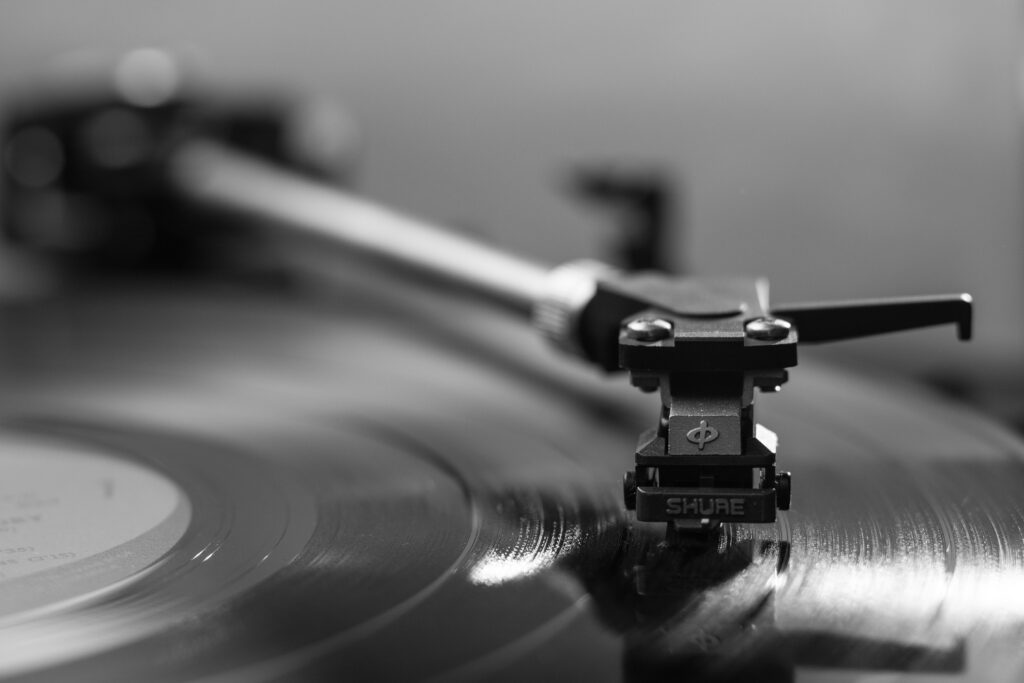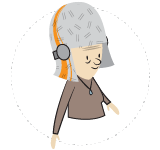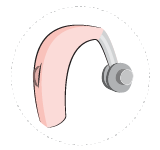Eldercare news in June 2020

A roundup of useful services, tips and trends to help you care for your older family and friends.
- Dementia radio is a hit for all ages
- Do ethnicity and belief mean greater risk for coronavirus?
- Local authority and social care ombudsman back online
- Vaccines and who should get them
- Why we should keep the toilet lid closed
- Cash gets hard to find and spend
- Older people less optimistic about the future
- An app that promises to improve hearing
Dementia radio goes live
 A lovely new radio station, called Dementia Radio, has been launched with the backing of a host of well-known names. Also known as M4D Radio, that station allows listeners to hear music associated with the decades that mean the most to them – usually their teens and young adult years – from before the 1930s onwards. The website is a good place to get started, with video instructions on how to find the station and listen to it through Alexa. Those helping to launch and promote the station include broadcaster Lauren Laverne and music producer Naughty Boy.
A lovely new radio station, called Dementia Radio, has been launched with the backing of a host of well-known names. Also known as M4D Radio, that station allows listeners to hear music associated with the decades that mean the most to them – usually their teens and young adult years – from before the 1930s onwards. The website is a good place to get started, with video instructions on how to find the station and listen to it through Alexa. Those helping to launch and promote the station include broadcaster Lauren Laverne and music producer Naughty Boy.
Do ethnicity and belief lead to greater risk?
Racial inequality is felt profoundly by those in later life and the newly announced government commission must not forget them, says the Associate Director for Communities at the Centre for Ageing Better, Patrick Vernon. He describes research by the Centre that found a third of the poorest people approaching retirement age that are living on less than £150 a week are BAME. As wealth affects health and wellbeing as people get older, it leaves older BAME people at greater risk of chronic diabetes, respiratory illness, arthritis and depression.
The Office of National Statistics continues to work at analysing the latest numbers to identify which groups appear to be at most risk from Covid-19-related deaths. After taking a range of socio-economic, factors into account, the Office concludes that there remains twice the risk for Black males and around one and half times the risk for Black females. There were also significant differences of Bangladeshi, Pakistani and Indian men. The research also looked at religion, and, again taking various socio-economic factors into account, found that Jewish men are at higher risk. Why this is so is unclear so far. The figures also showed that those whose daily activities are limited by disability appeared to be at greater risk.
Social care complaints service running again
The Social Care ombudsman in England has started up reviewing existing complaints and receiving new, having closed the service at the end of March so that councils and care providers could focus on delivering services. The ombudsman is expecting to receive complaints about events during the crisis, and asks people who wish to lodge a complaint to use the online form where possible.
Coronavirus vaccinations
There’s been much jubilation about the likelihood that a commonly available steroid can be used to help those with Covid-19 make a better recovery. It’s one of many approaches being looked at to both prevent catching the disease and improve results for those who do succumb.
Meanwhile advice is being developed by the Joint Committee on Vaccination and Immunisation who should be priority recipients of vaccines. The Group’s interim report suggests that the two key groups are:
- Frontline health and social care workers
- Those at increased risk of serious disease and death from Covid-19 infection.
In the UK the work continues to identify who would fall into the second category, taking into account age, underlying co-morbid factors and other potential signals, such as deprivation and ethnicity.
Close that toilet lid
A couple of years ago I read in the Bill Bryson book ‘At Home’, his musing that flushing the toilet potentially spreads germs through the air all around the bathroom. Ever since I have kept a cover from an old toothpaste container on my toothbrush. Now it seems that this theory could provide an extra weapon in the armoury against the latest coronavirus. Researchers in China are currently looking at whether closing the toilet seat after use could be an easy extra precaution against the spread of Covid-19.
Cash gets hard to find and spend
 One of the effects of the coronavirus crisis has been the hastening of the move to contactless and credit card payments, rather than handling cash. The trend towards making cash less available as cashpoints close has been hitting some sectors of the community hard, and that can include older people who aren’t comfortable with digital payments. Now eight locations across the UK are about to trial access to subsidised ATMS in different locations, including an army barracks. The first sites for the Community Access to Cash Pilots will be in remote communities, and results are due to be published next year.
One of the effects of the coronavirus crisis has been the hastening of the move to contactless and credit card payments, rather than handling cash. The trend towards making cash less available as cashpoints close has been hitting some sectors of the community hard, and that can include older people who aren’t comfortable with digital payments. Now eight locations across the UK are about to trial access to subsidised ATMS in different locations, including an army barracks. The first sites for the Community Access to Cash Pilots will be in remote communities, and results are due to be published next year.
Older people less optimistic than young about the future
While more than half of 16-29 year olds expect life to return to normal in the next six months, only 36% of those over 60 feel the same, according to an opinions and lifestyle survey by the Office of National Statistics. Comparing the outlooks of the two age groups, analysis of the survey found that younger people were also more positive about their household finances getting better over the next 12 months. The research also revealed that more older people have been worried about access to groceries, medication and other essentials – not surprising when many of those asked to shield are over 70. And while younger people have been coping with lockdown through watching media and socialising over the internet, older people have been reading and gardening more, as well as keeping in touch with family and friends remotely.
At the same time, consumer research into attitudes to online grocery shopping and delivery has found that nearly a third of over 75s have ordered food and drink online more frequently. This is a group, says the research, that has been reluctant to shop online due to barriers such as technology and digital payments, but has been quick to adapt during lockdown.
Strengthen your hearing?
 We’ve been alerted to AudioCardio, which is a mobile app designed to assess your hearing and generates a personalised sound therapy that maintains and strengthens your hearing. We’ve not tried it ourselves yet, but if it interests you, the company is offering a free 30-day subscription.
We’ve been alerted to AudioCardio, which is a mobile app designed to assess your hearing and generates a personalised sound therapy that maintains and strengthens your hearing. We’ve not tried it ourselves yet, but if it interests you, the company is offering a free 30-day subscription.
Photo by Anton Hooijdonk from Pexels

